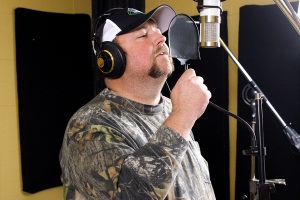
By Elianne Halbersberg
It’s difficult to imagine two more diametrically opposed genres than country and Hip-Hop. At least that’s how it appears on the surface. Scratch a bit deeper, though, and you’ll find that the two aren’t thematically that far apart. Whether spoken word or rhyme, country and Hip-Hop are centered around the story: what do the words say, what do they mean, whose lives are depicted and how?
If you still aren’t convinced, listen to the Johnny Cash/Easy E mash-up of “Folsom Prison Blues,” or search for Wyclef Jean’s chilling live rendition of “Delia’s Gone.”Eazy_E_vs_Johnny_Cash-Folsom_Prison_Gangstaz-106bpm
Or listen to Colt Ford, whose love for Hip-Hop announces itself all over his 2008 album, Ride Through The Country, and 2010’s Chicken and Biscuits, where he trades rhymes with one of his longtime idols, DMC, on “Ride On, Ride Out.” Ford is 100 percent country, no question, but the Georgia native grew up listening to Hip-Hop and earned his studio chops working with Jermaine Dupri. Remember Kris Kross? That was a Dupri/Ford production — one of many.
Last year, Ford performed over 200 live shows; this year, he’ll top that number. His songs have been chosen to represent the Professional Bull Riders Association, programming for college football and the Outdoor channel. Earlier this year he performed at the Grand Ole Opry.
Planet Ill spoke with Colt Ford about the making of Chicken and Biscuits, working with Jermaine Dupri, the parallels between country and Hip-Hop, and his desire to blur the lines between genres and stereotypes.
Planet Ill: You’ve had quite the year or two. Did you have any idea that the music you were making would catch on to such a degree?
Colt Ford: You hope and dream it will, but all you can do is make the best songs and hope people like them. There’s a lot of luck involved in this business. I’ve been very lucky.
Planet Ill: Let’s back up to what it was like growing up around Athens, Georgia, and how music became a part of your life.
Colt Ford: I always say, “I didn’t get into music; music got into me.” I really was always into it. When I was little I would beat on the dashboard of the car, and finally my parents got me some bongos, and then a drum set when I was 6 or 7 years old. I always liked percussion and the rhythm of music. I was raised listening to country music. My folks come from the country, but like a lot of kids, I got into hip-hop. I was intrigued by the Sugar Hill Gang, Run-DMC and anything creative or original. It doesn’t matter who it is; I appreciate talent and I’ve always listened to all kinds of music.
Planet Ill: What reaction did you receive, with parents who came from the country and growing up in a small Southern town, when you started listening to hip-hop? Did you hear any negative comments? Were there questions about your musical taste?
Colt Ford: Absolutely yes and yes. My dad was established in the community and he knew everybody. I was a good athlete, but I marched to the beat of my own drummer. A lot of kids listened to rap, but I was good at doing it. I was always good at putting words together. The guys that lived in what we called “the projects” were my friends. We played sports together, we hung out together, and I was always the same person no matter who I was around. A friend is a friend, and I never saw it any other way. I was criticized a lot for that, but I was strong and stubborn and I did my own thing.
Planet Ill: You reference spoken-word storytelling with country artists like Johnny Cash, Jerry Reed and C.W. McCall. Hip-Hop is also spoken-word storytelling. Are the genres closer than most people realize?
Colt Ford: Absolutely. They are very, very similar. We’re just reporting different lives. Drugs in the inner city — that’s typical in the ’hood. It is also what goes on in small towns with meth problems. It’s just different people telling their stories. A lot of guys will tell you that Charlie Daniels’ “The Devil Went Down to Georgia” was the first rap song they ever heard. When people call me a “country rapper,” I don’t like that term. I’m a country artist. Country music is a genre. Hip-hop music is a genre. Rap is a vocal style, and it’s one of my styles that I use on certain songs. I’m not trying to be a “country rapper.”
Planet Ill: You and [founder of Average Joes Entertainment, for whom Ford records] Shannon Houchins both worked as producers for Jermaine Dupri. How did you meet Shannon?
Colt Ford: We’ve been best friends for 20 years. I was working with Jermaine and we were doing everything together. He was 16 or 17 and I was 20 and at that time we didn’t know what the hell we were doing. He’s most talented person I’ve ever seen in the music business. Producers like Dre and Timbaland — they cannot do what Jermaine Dupri can do. That is a fact. They don’t write, they don’t play multiple instruments — Jermaine could write a country song if he wanted to. The gospel truth is that the guy is that talented.
Anyway, I had gone to a music conference, and then my dad got on the phone — he’s good at talking his way into things, and in 1985 he got on a conference call with Rick Rubin and Russell Simmons and they said, “A white kid from Athens, Georgia, rapping? I don’t think so.” It was always in me, and it worked out the way it should. Anyway, I went to this convention, I met Jermaine and we signed a deal. We became best friends. We did the Kris Kross stuff together. We did so much together. Looking back, although I was good at that and I can hold my own with anybody as far as rap, it wasn’t who I am. Now I’m getting to be myself and be honest, and it’s the freest and happiest I’ve ever been in my life.
Planet Ill: How did working with Jermaine prepare you to do your own CDs? What did you learn from him about writing and recording?
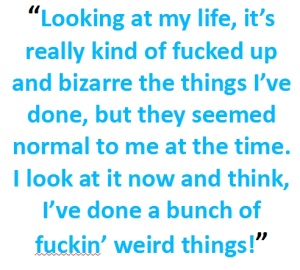 Colt Ford: Jermaine taught me a lot. (1) Never be satisfied. You can always keep working. (2) At the same time, don’t over-think. Nashville over-thinks everything. If the word is ain’t, then say ain’t! I don’t want to say something that the country person has to look up in the dictionary to figure out what I’m talking about. (3) Shannon and I learned a lot from Jermaine’s work ethic about never stopping new ideas, and making something new and better. Over the years, Shannon and I became best friends. We know each other’s families, each other’s kids, and we were always trying to do something so we could make it.
Colt Ford: Jermaine taught me a lot. (1) Never be satisfied. You can always keep working. (2) At the same time, don’t over-think. Nashville over-thinks everything. If the word is ain’t, then say ain’t! I don’t want to say something that the country person has to look up in the dictionary to figure out what I’m talking about. (3) Shannon and I learned a lot from Jermaine’s work ethic about never stopping new ideas, and making something new and better. Over the years, Shannon and I became best friends. We know each other’s families, each other’s kids, and we were always trying to do something so we could make it.
I came back to him when my wife pushed me to do a song for the Professional Bull Riders. I went to Shannon and I said, “Check this out and let me go track it so that she’ll quit bitching at me!” We cut the song and I sent it to the CEO of the PBR. He thought it was a hybrid blend of country that was cool for young kids, but he didn’t believe it was me doing it. He knew me as a guy who was good with his clients and who played professional golf. Looking at my life, it’s really kind of fucked up and bizarre the things I’ve done, but they seemed normal to me at the time. I look at it now and think, I’ve done a bunch of fuckin’ weird things!
Planet Ill:You were a golf pro for 10 years. Did you really think you could leave music?
Colt Ford: I would get out there on the course and the guys were intrigued about me doing music. I’d say, “Dude, that’s not what I’m doing now. I’m trying to do this.” People ask me how I stuck with it for so long, because not many guys jump into the music business when they are 35 years old, 300 pounds and wearing a cowboy hat. It does not fit anybody’s model. A lot of people said I was crazy, but Shannon and my wife pushed and said, “Let’s make it happen.” We didn’t take no for an answer. We’ve been told “no” at every turn, and everyone said we were crazy. Now those people have offered substantial money to do business with us. They can forget it.
Planet Ill: What were your goals for this album, and how did you accomplish them?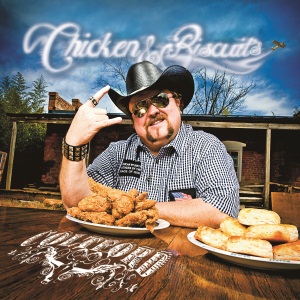
Colt Ford: Somebody in Nashville told me, “If you want to have a career, your first record needs to be black and white; it needs to say, ‘This is who I am.’ Your second one needs to be black and white and red, meaning you need to grow. And with your third record you keep adding pieces and colors.” I wrote my first record by myself. I didn’t know about co-writing, which is the way they do it in Nashville. I’m lucky to have good relationships there, because it can take 10 to 15 years to build the relationships I built in a year.
I’ve grown as an artist. Radio was scared of me on the first record. This time out, I wrote very straight-ahead country songs that still weren’t made for country radio, but they’re cool. I had to make sure not to lose who Colt Ford is, because 200,000 fans bought my other record and I don’t want them to say, “Who is this?” I want them to love and respect me.
Planet Ill: Let’s talk about the making of this record. How long were you in the studio? How did you select your guest artists? Did you record together or send files?
Colt Ford: A lot of hip-hop artists do things with files, but all of the artists on my album are friends of mine and they came to the studio. Nobody was getting paid; I didn’t buy anybody a Range Rover. It’s a totally different vibe in Nashville. There are some big songwriters in urban, pop and R&B who won’t write with Nashville writers because they want to get paid. These are songwriters with 50 Number One singles and they won’t get together with someone to write a song unless they get paid. Most of the tracking on my album was done, and a lot of the time we’d get a scratch vocal and I’d say, for instance, “This works with Darryl Worley,” and then ask him about doing the song.
Planet Ill:How much was Shannon involved with this record?
Colt Ford: With the first record, we were driving back and forth to Nashville in a van, going, “Are we crazy? Will this work? What the hell are we doing? Jayson Chance, my guitar player and bandleader, produced this as a double album. The second part will be out at the end of the year. Jayson is such a pro. I’m a one-take kind of guy, always have been, from working with Jermaine, but Jayson would go, “Well, this needs to go here to get the correct emotion,” and we’d do it until we were both comfortable with it.
Planet Ill: How did DMC end up on this album?
Colt Ford: That was awesome! Whether you love or hate Run-DMC, you have to acknowledge that they’re one of the few groups that changed the musical landscape of this country. Someone had an idea about getting him to do the track and we approached him. We decided to meet and see if we could dig each other. We did. We have a lot in common. We like the same things. We want the same things for our kids. He’s from New York, but he wears Levi’s and drives an F-150. I was like a little kid when I met him. That was one of the greatest things I’ve ever done, especially with my Hip-Hop and rap background and my love for what Run-DMC has done. The coolest thing of all was that he played the track for Chuck D and Big Daddy Kane and they thought it was great. There’s even talk of a remix. Those guys are icons to me. I grew up listening to their records.
Planet Ill: Do you think the fact that you are doing this kind of music, combining the genres and the artists, can expand the fan base on both sides and maybe open some minds both musically and socially?
Colt Ford: I think probably that’s a very fair statement, and that it could happen and that it has to some degree. I hope so. The truth of the matter is that people’s musical palettes are much broader than they admit. People say to me, “What you’re doing is shocking.” Really? If you’ve ever been to a country bar, you know that when the band finishes playing “Okie from Muskogee,” the DJ puts on the Ying Yang Twins and the dance floor is packed.
In any small town you will see V71 trucks in the parking lots playing a Toby Keith or Hank Williams Jr. or Jamey Johnson CD, and then they’re playing Eminem. Lil Wayne is like friggin’ Madonna to them. And these are white kids in small towns! And that’s OK. People try to say I’m not country and get into these arguments about it. There’s a lot of great music out there. Kanye West is a genius, but he’s a fucking lunatic on the social side of things. I can’t relate to all that Eminem sings about because I never thought about killing my wife or my mother-in-law and shoving her in the trunk of my car, but I still think he’s a genius. It is a good song or isn’t it? It doesn’t matter who’s doing it. Do you dig it or don’t you? That’s all that matters.
Elianne Halbersberg is a freelance writer whose work has been published by Guitar Edge, Mix, Premier Guitar, Gibson.com, Electronic Musician, Audio Media, Ink 19 and numerous other magazines and websites.
Follow Us on Twitter @ http://twitter.com/planetill
Join Us on the Planet Ill Facebook Group for more discussion
Follow us on Networked Blogs

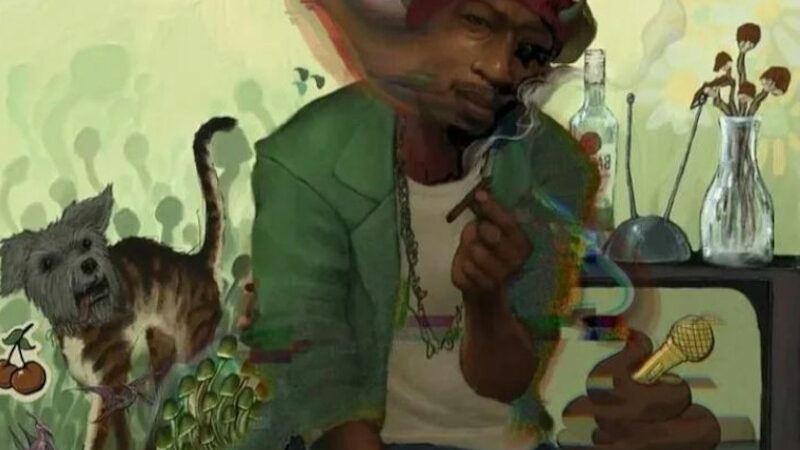
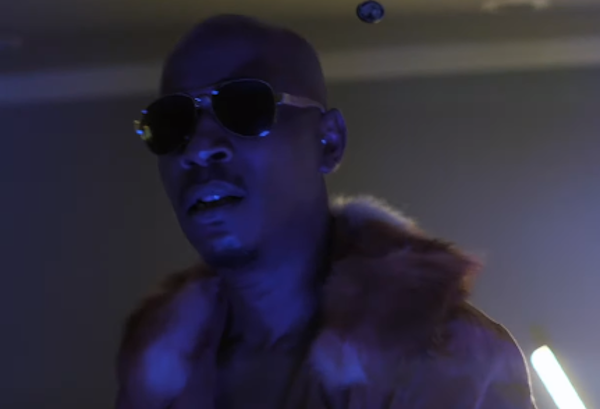
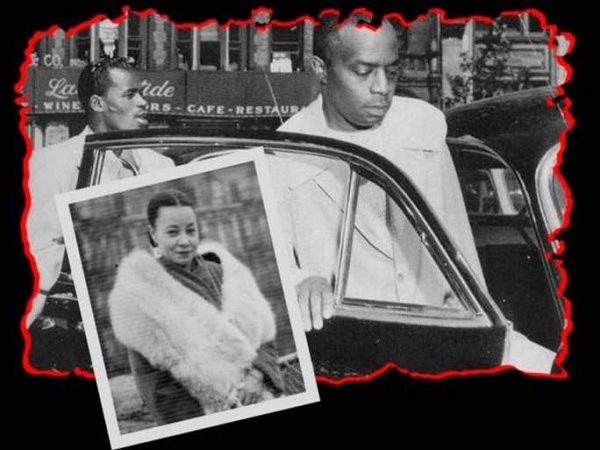
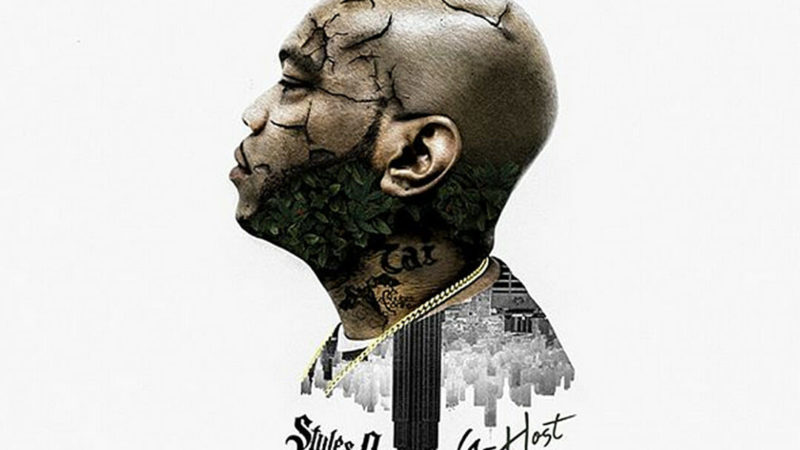
2 thoughts on “Colt Ford: From Kriss Kross To Country”